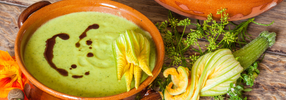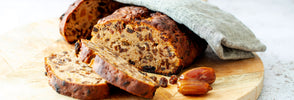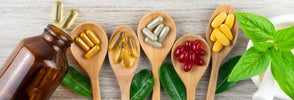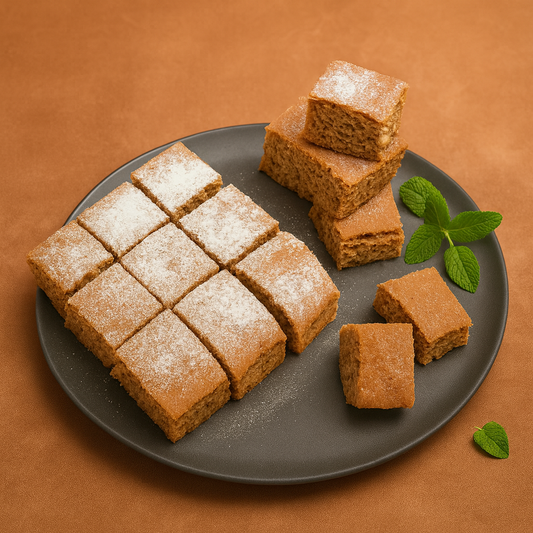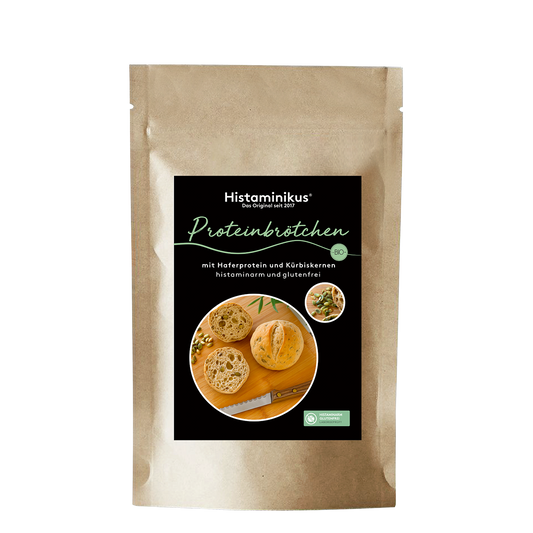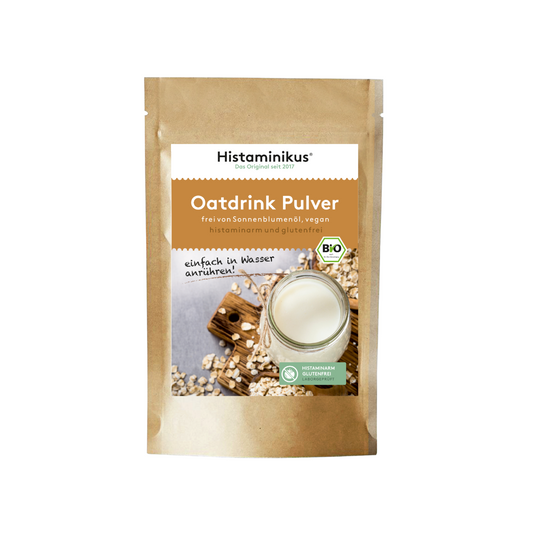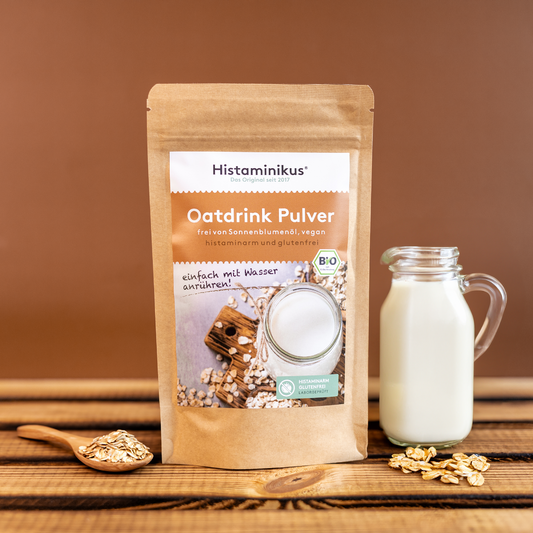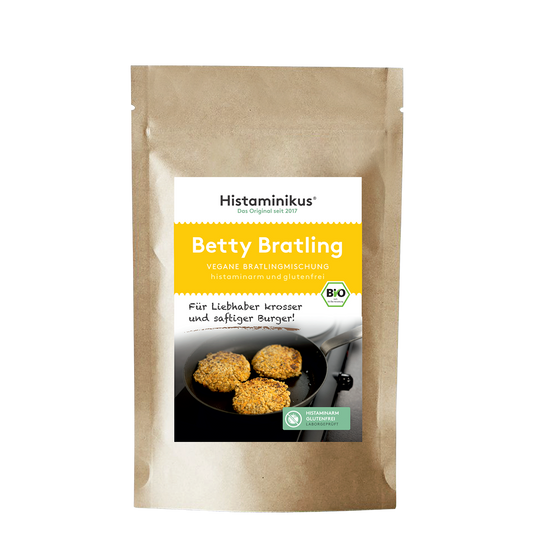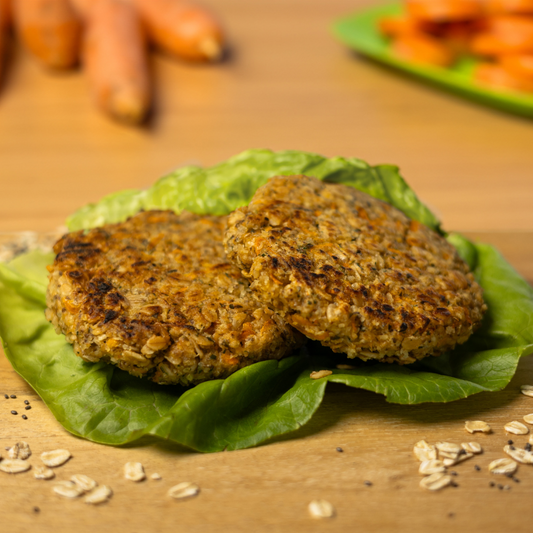
How histamine affects your brain
How fears, panic attacks and depression arise
If you have already dealt with the topic of histamine, then you certainly know that histamine is responsible for many allergy -like symptoms in your body. Certainly as a person concerned you can also confirm that Histamine symptoms often an immense stress in everyday life and that The quality of life is often significantly restricted.
But Histamine can also Reason for "psychological" problems be in which it is in truth biological disorders acts because the histamine breakdown is disturbed. It all the more annoys me again and again when you are put into the corner "psychological problem" by doctors and no further treatment. This is really sad and has already happened to me.
The US doctor Dr. med. Carl Pfeiffer from the "Princeton Brain Bio Center" investigated the question of whether the question was not Cause of certain mental disorders in a disturbed metabolism could lie. And as we know is that Histamine intolerance a metabolic disorder, a metabolic disease. His decades of research then came to this result. Dr. Carl Pfeiffer shaped the concept of Histplate. Histbladelie means nothing more than under one high histamine levels to suffer The central nervous system (ZNS) has an effect.
Unfortunately, doctors still treat such patients incorrectly and give psychotropic drugs instead of researching the deeper biological causes.
Have you ever wondered why you suddenly struggle with fears, depression and panic attacks in a histamine intolerance?
The reason for this is the influence of your central nervous system The neurotransmitter histamine.
Organic baking mixes & Co
-
Wintergold Gewürzkuchen Bio
5.0 / 5.0
(3) 3 total reviews
Regular price €7,99 EURRegular priceUnit price 79,90€ / per kg -
Protein rolls organic
5.0 / 5.0
(1) 1 total reviews
Regular price €7,99 EURRegular priceUnit price 18,58€ / per kg -
Oatdrink powder bio
4.29 / 5.0
(7) 7 total reviews
Regular price €8,99 EURRegular priceUnit price 44,95€ / per kg -
Betty Bratling organic
Vegan brats mixture
4.8 / 5.0
(30) 30 total reviews
Regular price €4,99 EURRegular priceUnit price 28,03€ / per kg
Did you know that histamine plays a crucial role for your brain and your emotions?
One Histamin reaction in your brain has an enormous effect on your mood, your ability to concentrate and your entire brain function. In the meantime, many studies show that Histamine, stress and emotions closely linked are. According to expert opinions, High histamine status always influences your nervous system. This also proved an interesting study that actually wanted to test skin reactions due to histamine, but then found that the Mood and the emotional condition of the subjects one had significant influence on how violent the allergic reaction was. (1)
It is also interesting that People with a histplate a have certain personality type. Such people often have the following characteristics (it doesn't have to be all):
- Tendency towards hyperactivity
- High energy level
- Impulsive behavior
- Highly motivated, intelligent
- Tend to be successful
- Perfectionist, creative makers
- Often controlling
- Never really come to rest
- Depression, thoughts of suicide
- Often dope with coffee, sugar or other addictive
- Are often not the simplest people
- Want quick solutions and answers
- Tendency towards strong sexual desire
Usually people with a histplate with both legs stand in life. Nevertheless, approx. the half from them again and again Depression or depressed moods.
If the histamine level increases too much, fears, chronic depression, stress and low stress resilience are the result. This leads to a particularly high emotional stress for this personality type. Especially when the symptoms of a high histamine level come on top.

Symptoms of a histplate
The Symptoms associated with a histamine surplus in the central nervous system are often the following:
- Fears, often unfounded
- Panic attacks
- Concesses, forced neuroses
- Depression (2)
- Built close to the water
- Inner tension and unrest
- Concentration disorders
- Low attention span
- Drivelessness, sleep disorders
- Chaotic, often do not find the common thread
- ADHD (3)
- Often not affected, but are totally restless inside
- High saliva production
- High metabolic metabolic rate
- Increased sensation of pain
- increased addiction potential
- Itching on the skin
Can you perhaps recognize yourself in one or the other symptom?
Histamine and the brain
Our brain is permanently receiving signals from its surroundings through our 5 senses. But our brain does not only receive and process these signals, but needs four complex systems so that the information can also go and process through the correct channel.
One of these systems is "histamine System “called. It is part of the vegetative nervous system and is responsible for homeostasis (self -regulation), i.e. regulates the stimuli that our brain receives.
Histamine is therefore in many Regulation processes involved and influences the following as a neurotransmitter in the brain:
-
Sleep wax rhythm, reaction fast
Histamine is responsible for our waking state. Therefore, it is not very surprising that increased histamine levels keep alive at night and that we do not find sleep. Too much histamine favors insomnia and sleep disorders.
-
Sitting feeling, appetite
Hunger is a survival mechanism. Studies have shown that there is an interesting connection between histamine and the need for food intake. High histamine levels increase our appetite and thus control our eating behavior. (5)
-
Memory, learning ability
Histamine has a positive effect on our memory. Higher histamine levels in the brain should even protect against Alzheimer's. In a study it was found that H3 antihistamines make the cognitive symptoms of Alzheimer's. The histamine system is considered very promising to improve cognitive deficits. (7)
-
Self -motivation, attention
Histamine plays a crucial role in our self -motivation and the reward system of our brain. A study tested how women react to 30 minutes of sport. The results showed that, due to the increasing histamine level, self -motivation and motivation to finish the task. (4) Histamine inspires us to finish tasks.
-
Neurotransmitter regulation
Histamine itself is an important neurotransmitter that influences other neurotransmitters, such as dopamine, serotonin, noradrenaline and acetylcholine. All share the same H3 receptor. Histamine also works closely with our good mood neurotransmitters such as Gaba, dopamine and serotonin. A high level of inflammation (which can result from histamine) can prevent the production of these neurotransmitters. So histamine has a great effect with regard to neuropsychiatric diseases such as depression, schizophrenia and even ADHD. (6.3)
-
Stress response
If a stress reaction is triggered in our body, some affected people suffer from itching. (8) Itching is a very well -known histamine -related allergy symptom. But stress itself does not cause itching, but the chemical cocktail that is released in your blood in a stress reaction. Stress increases the release of histamine from the mast cells and thus causes annoying symptoms such as itching. The number of mast cells fluctuates with stress and various behaviors. This indicates that mast cells are able to influence the neural systems that are responsible for stress and our behavior. (9)
-
Fears and panic
Neurotransmitters play an important role in triggering and vaping fears. Exciting neurotransmitters include acetylcholine, Noradreanlin, adrenaline, serotonin, dopamine and histamine. Under the point of neutrotransmitter regulation, we have already learned that histamine influences all of these neurotransmitters. Using this information, we can now also understand that fears and panic attacks can arise from nowhere.
In a study, it was researched that asthmatic reactions, allergy and intolerance reactions Increase activity of the mast cells in the brain, trigger the release of histamine trigger and trigger fear behavior. It was also found that the hypothalamus-hypophysen-nine-nerve axis is activated. (9) and exactly in the hypothalamus the brain forms its own histamine. The study proves that there is a Direct connection between the mast cells (immune cells that distribute histamine) in the brain and fears and panic attacks. Mast cells can change the signal milieu in the brain and thus influence our behavior.
Another study has shown that inflammation in the brain is also associated with fears. To do this, you have to know that when the histamine is distributed, inflammation is triggered as an immune response.
-
Further regulation processes
Further regulation processes of histamine are: • Release of adrenaline in the adrenalmark • Addiction behavior • Pain sensation • Emotions • Sexual behavior
How does the histamine get into the brain?
It has been proven that Histamine cannot overcome an intact blood-brain barrier, i.e. no matter how much histamine your body produces, none of it can get into your brain. So How does a histamine surplus in the brain come about? The answer is very simple: The brain produces its own histamine.
Research has shown that the brain histamine on the one hand in mast cells, but predominantly In hypothalamus (11) - In so -called histamineergic neurons - produced. As soon as these neurons are irritated, histamine is released. Histamine spreads from the hypothalamus into other regions of the brain.
If histamine now docks to other receptors in the brain, it causes a strongly stimulating effect, i.e. the histamine overstimulated certain areas of our brain.
The consequences of this are depression, fears and other psychological and cognitive disorders.
Histamin receptors in the brain (12)
Our brain has 3 histamine receptors that can lead to mental illnesses and cognitive disorders in imbalances.
-
H1 receptor
- Stimulates the neurons in the brain
- Is for the Sleep wax rhythm responsible
- Also activates our Fight-flight mode, leads to the release of noradrenaline, plays a role Anxiety disorders and depression.
The activation of this receptor through histamine also explains why sleep disorders are a frequent symptom of histamine intolerance and why some antihistamines have a sedative effect if they block this receptor.
-
H2 receptor
- Similar to the H1 receptor, also stimulating.
- Mainly for Perception, memory, learning, reward, lust and pain responsible.
- controlled Addictions and compulsive behavior
Antihistamines that block this receptor can change our sensation of pain. Alcohol and drugs affect histamine activity in this receptor. In the meantime, it was found that diseases such as bulimia and anorexia in connection with the effects of histamine are also on the reward system of our brain.
-
H3 receptor
The H3 receptor inhibited On the other side the Salvation of histamine. This receptor is also responsible for regulating the release of other neurotransmitters in the brain. Experts see medication that stimulates the H3 receptor as a promising solution to regulate the histamine release in the brain.
-
Histamine mining in the brain
Histamine mining in the brain does not take place via the DAO. This reduces histamine in the intestine through the food. That is in the brain Enzyme for the Reduction of histamine responsible. Unfortunately, there are not many research over this enzyme and so it still remains a certain mystery.
Therapy approaches
The change in diet, the most powerful weapon
A low -histamine diet can lower your histamine content in the body. A study that actually wanted to examine the effect of a histamine -reduced diet on allergic symptoms found a surprising complete decline in symptoms with 3 experimental participants who had to deal with panic attacks. (13) This and many other examples from everyday practice, especially from psychotherapists, show how a low -histamine diet can reduce your symptoms.
Start right now and invite our nutritional list -you can find a more detailed list in our here.
Therapeutic measures
Alternative practitioners and doctors have found that a Histamine surplus in the central nervous system is often an expression of a methylation disorder (according to Dr. W. J. Walsh).
Dr. Carl Pfeiffer continues to assume that the chronic energy deficit in the nervous system leads to the activations of the C nervous fibers and that it leads to increased histamine release from the mast cells in the event of irritation. In the case of those affected by histamine intolerance, this surplus is not sufficiently broken down.
A disturbed histamine mining can be caused by lack of vitamin B6, B12, folic acid and methionine. The substances mentioned are on the one hand for the enzyme dao and required in the brain as part of the histamine mining for methylation reactions.
Recommended laboratory diagnostics
Talk to your doctor or naturopath that he carries out the following laboratory diagnostics.
Determination of:
- Histamine in the chair
- Total histamine mining capacity
- Dao in the serum (centrifuged)
- Histamine in the blood
- Copper, same or methionine, manganese, B6, zinc, vitamin B12, calcium
- Extended histamine diagnostics: serotonin, glutamat, Gaba, adrenaline, noradrenaline, dopamine, creatinine enzyme (urine)
- Creation of a intestinal profile
- IgG food test
- Exclusion of other bowel diseases and food intolerances
A good addition to "causes and symptoms of panic attacks - and what they best do about it" can be found on the Website by Andreas Humbert, who himself suffered from panic attacks for years. On the website, the background and other organic causes are explained again very nicely. to the website
Recommended treatment concepts
The treatment should take place based on the results of laboratory diagnostics and should be discussed with a doctor or alternative practitioner. Colonation change in diet (histamines, low -inflammatory and natural nutrition best in organic quality) make micronutrient compensation depending on the finding (vitamin B12, copper manganese, methionine, zinc, b6, seame, calcium) vitamin C (oral or as an infusion). Folic acid can be avoided with a histplate because histamine -promoting! Infusion therapy (e.g. histamine infusions from the Viktoria pharmacy from Saarbrücken) stress management, Learn breaks in the fresh air
Collapsible content
Sources
(1) www.ncbi.nlm.nih.gov/pubmed/11488666
(2) https://www.sciencedirect.com/science/article/pii/S0166432816304168
(3). https://www.sciencedirect.com/science/article/pii/B9780128141809000132
(4) https://www.sciencedirect.com/science/article/abs/pii/S0031938415301463
(5) https://link.springer.com/chapter/10.1007/978-3-319-40308-3_15
(6) https://www.ingentaconnect.com/content/ben/cpd/2015/00000021/00000026/art00007
(7) https://www.sciencedirect.com/science/article/pii/S0028390815001884?via%3Dihub
(8) https://onlinelibrary.wiley.com/doi/abs/10.1111/ijd.12864
(9) www.pnas.org/content/105/46/18053
(10) C. C. Pfeiffer, Nutrition and mental illness. Rochester, Vermont: Healing Arts Press, 1987.
(11) https://www.ncbi.nlm.nih.gov/pubmed/26100750
(12) https://mthfrsupport.com.au/2016/09/histamine-and-mental-health/
(13) https://www.tandfonline.com/doi/abs/10.1080/13590840120103094
(14) Recommendations according to Dr. Carl Pfeiffer and alternative practitioner Kyra Kaufmann (Kyra Kaufman has completed an apprenticeship with Dr. William Walsh, who, as a pioneer of orthomolecular brain research, delivered pioneering knowledge of the relationships of mental diseases with nutrient defects and histamine/methylation disorders.)
We have to point out that all information relates to traditional knowledge, studies and opinions and experiences of therapists and literature. Our contribution cannot replace medical healing treatment with the diagnosis and therapy of a doctor. We cannot give a healing promise either. It is primarily about passing on information. In the event of serious illnesses, non -explanatory symptoms and uncertainty, you should see a doctor. The treatment methods mentioned are used for your own dangers!
We have to point out that all information on treatment methods, nutrients and vitamins and their effects relate to traditional knowledge, studies and opinions and experiences of therapists and literature. Our contribution cannot replace medical healing treatment with the diagnosis and therapy of a doctor. We cannot give a healing promise either. It is primarily about passing on information. In the event of serious illnesses, non -explanatory symptoms and uncertainty, you should see a doctor. The nutrients or forms of therapy mentioned are used for your own dangers. Everyone has to decide for themselves what and whether they have it!

From those affected for those affected
We are Thomas and Michaela Zinser, founder of Histaminikus.
Because of the own histamine intolerance of Michaela and our son, we founded Histaminikus. The frustration does not find any suitable histamine food has spurred us to develop low -histamine food.
We would like to give you back a piece of quality of life. Feel free to look around with us.
Kind regards
Thomas and Michaela


